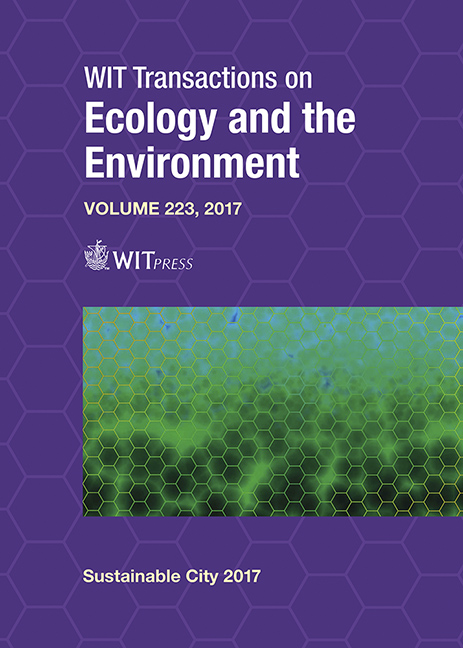TRANSSHIPMENT STATION FOR URBAN SOLID WASTE: AN ANALYSIS CONSIDERING CITY LOGISTICS CONCEPTS
Price
Free (open access)
Transaction
Volume
223
Pages
11
Page Range
559 - 569
Published
2017
Size
3,419 kb
Paper DOI
10.2495/SC170491
Copyright
WIT Press
Author(s)
LEISE KELLI DE OLIVEIRA, RENATA LÚCIA MAGALHÃES DE OLIVEIRA, LILIAN SILVIA TEIXEIRA DE AVELAR RUEDA
Abstract
In this paper we analyze the impact of a transshipment station on the urban solid waste management, considering the trade-off among (i) transportation and operational costs of the transshipment; (ii) operational costs of the trips considering the transshipment station; and (iii) costs for the collection trips from the districts directly to the landfill. The study was carried out in the city of Belo Horizonte (Brazil), which produces 1,730 tons of urban solid waste per day. We have evaluated three scenarios: (i) baseline scenario, in which part of the solid waste is consolidated on a transshipment station and the other part is destined directly to the landfill; (ii) transport direct to the landfill; and (iii) consolidation of all solid waste on the transshipment station. We have evaluated these scenarios considering the cost of collecting and transporting the solid waste. We then analyzed the correlation between cost and distances: distance and total transportation cost have a positive correlation, and distance has a negative correlation with the unitary transportation cost (R$/km), i.e., when the distance increases, the cost of transportation per kilometer decreases. Our results indicate that the transshipment station has economic advantages for consolidating and transporting solid waste to a landfill. However, direct transport to a landfill is more profitable if the transportation cost (R$/km) increases up to 9.28%. If the transportation cost increases more than 15%, the operation cost of a transshipment station can increase up to 62%. However, an efficient operation in the transshipment station is critical to ensure this level of profit. Finally, the location of the transshipment station is imperative, and baseline scenario presents a better network for the urban solid waste logistics management.
Keywords
urban waste management, transshipment station, urban freight transport





